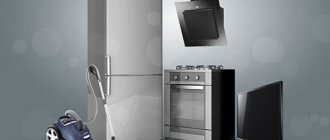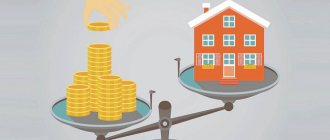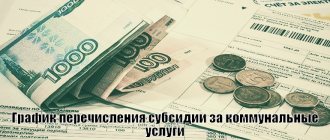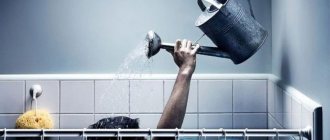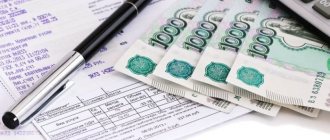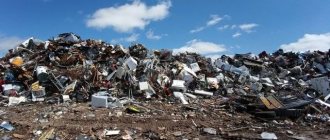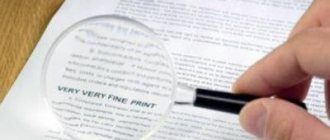Main points
First of all, it should be noted what is included in the list of provided utilities:
| Name of communication | Explanation |
| Cold water supply | 24-hour supply from a central or intra-house network in quantity and quality appropriate for domestic needs. If there is no water supply system, there must be a water supply to the street water pump. |
| Hot water supply | 24-hour supply through the central water supply network. |
| Sewage drainage | Disposal of domestic wastewater through the intra-house and central sewer system. Most of the existing premises of an apartment building are equipped with such systems. |
| Electricity supply | Uninterrupted round-the-clock supply of electricity in sufficient quantities |
| Gas supply | 24-hour supply via the gas supply network. Supply using gas cylinders is acceptable. |
| Heating | Supply of heat energy through centralized networks, as well as heat supply systems, maintaining proper temperature conditions during the heating season. |
Of course, utilities cannot include an item that does not actually apply to a specific home. For example, if there is no sewerage system or hot water supply, they should not be included in the payment and, accordingly, are not included in the agreement with the management company.
Housing services - what are they?
Housing services include services and work on the management of apartment buildings, maintenance, current and major repairs of common property in apartment buildings.
This type of service is regulated by the following documents:
- Housing Code of the Russian Federation;
- Decree of the Government of the Russian Federation dated May 13, 2006 No. 491 “On approval of the rules for the maintenance of common property in an apartment building and the rules for changing the amount of fees for the maintenance and repair of residential premises in the case of the provision of services and performance of work on the management, maintenance and repair of common property in an apartment building of inadequate quality and (or) with interruptions exceeding the established duration" (hereinafter referred to as the Rules).
- Tariffs for housing services
- Frequency of service provision
The owner of premises in an apartment building is obliged to bear the costs of maintaining the premises belonging to him, as well as to participate in the costs of maintaining common property in an apartment building in proportion to his share in the right of common ownership of this property.
Payment for residential premises for a tenant of residential premises occupied under a social tenancy agreement or a rental agreement for residential premises of a state or municipal housing stock includes: 1) payment for the use of residential premises (rental fee); 2) payment for the maintenance and repair of residential premises, which includes payment for services and work on managing an apartment building, maintenance and routine repairs of common property in an apartment building. Major repairs of common property in an apartment building are carried out at the expense of the owner of the housing stock.
Payment for residential premises for the owner of premises in an apartment building includes: 1) payment for the maintenance and repair of residential premises, including fees for services and work on managing the apartment building, maintenance, and routine repairs of common property in the apartment building; 2) contribution for major repairs. The amount of payment for residential premises is determined depending on the method of managing the apartment building.
List of housing services provided by housing and communal services No. 3 of the Central District:
| №pp | Name of housing service | Frequency of execution |
| 1 | 2 | 3 |
| 1. | Apartment building management (includes wages, contributions to compulsory social insurance funds, office expenses, communication services, program support, maintenance of office equipment, repairs of premises, rent, expenses for official travel, payment for auditing and consulting services, security, fees for the All-Russian Central Communist Party (maintaining a database consumers, calculation, printing and delivery of payment documents, payment without commission), etc.) | continuously |
| 2. | Work on the maintenance of the common property of an apartment building, including: | |
| 2.1. | Direct content (i.e., compliance with the reliability and safety characteristics of apartment buildings; safety for the life and health of citizens; accessibility of use of residential premises and common areas; constant readiness of utilities; inspection of common property, ensuring temperature and humidity established by the legislation of the Russian Federation in common areas), including: | |
| 2.1.1. | Technical inspections | 2 times a year, extraordinary inspections if necessary |
| 2.1.2. | Works and services under contracts with specialized organizations (pipe cleaning work, measuring wire insulation resistance, maintenance of integrated dispatch systems, checking pressure gauges and meters, etc.) | chimney cleaning work - ventilation ducts 2 times a year, chimneys 4 times a year; measuring the insulation resistance of wires once every 3 years; calibration of gas analyzers once a year |
| 2.1.3. | Emergency service (elimination of accidents on secondary circuit engineering networks, intra-house systems, elimination of blockages, elimination of accidents on electrical networks, etc. This money contains: 4 shifts of emergency crews (driver, plumber, welder); the teams are equipped with mobile communications and good equipment to ensure uninterrupted work around the clock; a stock of materials has been created) | around the clock |
| 2.1.4. | Preparing houses for seasonal use (Carrying out a set of necessary measures for the sustainable functioning of all engineering life support systems of the housing stock during the winter period, namely: preparation of the heating center, hydraulic tests of heat supply systems, repair of shut-off and control valves; pressure testing of elevator units and pipelines at a pressure higher than the design; flushing of heating systems; restoration thermal insulation and painting of pipelines; preparation of pumping stations and boilers for operation in heating mode; installation of throttling devices; adjustment of safety valves; insulation and lighting of water metering units; verification of thermal energy metering units; elimination of faults and damage to water supply networks; training of technical personnel and a number of other work established by the rules. Presentation of work to inspecting organizations: State Unitary Enterprise "TEK St. Petersburg", State Unitary Enterprise "Vodokanal St. Petersburg", LLC "PetersburgGaz", State Fire Supervision, State Housing Inspectorate. Registration and submission of readiness passports for each house to the Administration of the Kalininsky District.) | 1 time per year |
| 2.1.5 | Application repair (registration of applications from the population and users of non-residential premises, minor repairs of plumbing equipment, replacement of gaskets, elimination of leaks in plumbing equipment, elimination of minor malfunctions in central heating and hot water supply systems, elimination of minor malfunctions of electrical devices in common areas, elimination of internal sewerage blockages pipelines and sanitary fixtures that occurred through no fault of the residents) | regularly |
| 2.1.6 | Deratization services | monthly |
| 2.1.7 | Inspection of emergency apartments, technical inventory, rental of direct wires, transportation costs for servicing households. | regularly |
| 2.1.8 | Facade cleaning services (stickers, graffiti, etc.) | |
| 2.2. | Ice removal and snow removal | in winter if necessary |
| 2.3. | Cleaning staircases | see Appendix 1 |
| 2.4. | Solid waste removal | regularly |
| 3. | Work on routine repairs of the common property of apartment buildings (Annually, a targeted program is drawn up for cosmetic repairs of staircases, sealing joints of wall panels, roof repairs and other work. Also, the work on routine repairs of the common property of the house includes unforeseen repairs (repairs, the need for which is determined in during operation): Central heating: — change of individual sections of pipelines, sections of heating devices, shut-off and control valves; — installation (if necessary) of air valves; — insulation of pipes and devices; — change of fittings, instrumentation, hydraulic testing of systems; — restoration of destroyed thermal insulation. Water supply and sewerage, hot water supply: — sealing connections, eliminating leaks, insulation, strengthening pipelines, changing individual sections of pipelines, fittings, siphons, revisions; restoration of destroyed thermal insulation of pipelines, hydraulic testing of the system; — repair of pumps and electric motors, replacement of individual pumps and low-power electric motors; — cleaning of storm and yard sewers, drainage. Power supply and electrical devices: — replacement of faulty sections of the building’s electrical network, excluding the electrical networks of residential apartments; — replacement of failed electrical installation products (switches, plug sockets); — replacement of lamps; — replacement of fuses, circuit breakers, batch switches of input distribution devices, switchboards; — replacement and installation of photo switches, time relays and other devices for automatic or remote control of lighting in common premises; — replacement of individual electrical installations of the building’s engineering equipment; Carpentry work: - replacement, restoration of individual elements, partial replacement of window and door fillings). | regularly |
| 4. | Cleaning and sanitary-hygienic cleaning of the land plot included in the common property, maintenance and care of landscaping elements located on the land plot included in the common property, as well as other objects located on the land plot intended for maintenance, operation and improvement of this apartment building. | see Appendix 2 |
| 5. | Cleaning the garbage chute | see Appendix 3 |
| 6. | Maintenance and current repair of in-house gas supply systems | regularly |
| 7. | Maintenance and repair of the intercom and locking device (automatically locking device for the entrance door) | regularly |
| 8. | Maintenance and repair of automated fire protection systems | regularly |
| 9. | Operation of collective (common house) metering devices for energy resources used, including by type of resource (As part of the maintenance and operation of collective (common house) electrical energy devices, work is carried out to verify and replace a faulty or unverified metering device. The list of works and activities for the operation and maintenance of common house metering units for thermal energy (hot water) and cold water is carried out contracting organizations, which includes: professional examination; testing and setting up equipment on site; routine repairs (replacement of gaskets, fasteners, cleaning of flow meters, replacement of faulty components of the unit), etc.): | |
| 9.1 | Electric Energy | regularly |
| 9.2 | thermal energy and hot water | regularly |
| 9.3 | cold water supply | regularly |
| 10. | Maintenance and repair of elevators: | |
| 10.1. | — maintenance and repair of elevators | monthly |
| 10.2. | — annual technical diagnostics of elevators | 1 time per year |
| 10.3. | — expert examination of elevators that have completed their designated service life (technical diagnostics) |
Obligations of management companies and housing and communal services
General household needs that are satisfied by management companies, housing and communal services and other relevant structures are also included in the cost of utilities. Every resident should know what exactly he is paying for and whether he is getting what he is paying for. General utilities include:
Additionally, there may be other clauses that are included in the contract individually. If you need to find out exactly what additional utilities these are and what else they include, you can contact the management company or housing and communal services. Often such a need arises from overly vigilant citizens or in cases of unscrupulous performance by governing bodies of their duties.
What is the difference between housing services and utilities?
For the average person, the news about an increase in utility tariffs is associated with an increase in the numbers in the receipt for all items in the “Payable” column. Such illiteracy in the housing issue turns into a new stream of negativity towards the faceless “everyone and everyone.” It is clear that in order to read a book, you need to know the letters and be able to combine them into syllables, and syllables into words. Likewise, awareness of the housing issue begins with the basics - understanding the “foundation” of the housing and communal services industry. The new section is a kind of alphabet for those who want to figure it out. In this article we will look at what services and who increases tariffs.
When we are once again informed about an increase in utility tariffs, this affects the following items on the receipt: cold and hot water supply, sewerage, electricity supply, heat supply, gas supply. Tariffs for them are set and controlled by the state.
Also read: Posting the payment of authorized capital to the cash register
Current standards
The changes that affected the rules for the provision of utility services include not only the division of responsibilities into items, but also the procedure for calculating and paying for receipts. Not counting heating, payment is divided into a common house payment and individual payment for each apartment owner. Receipts also arrive separately.
Innovations also affected regulatory coefficients. This was done in order to encourage citizens to install individual meters in their apartments. The principle turned out to be very simple: for those who have the technical ability to install a meter, but did not do so, an increased standard was introduced for all types of public services. Further, for the same category of the population, the tariff increased every six months by ten percent to a limit of sixty percent. In other words, further refusal to install meters is fraught with an overpayment of sixty percent just two years after such an innovation, which was approved back in 2013.
The only advantage of such a change is the fact that this percentage overpayment is aimed at saving energy and increasing the efficiency of existing systems.
What is actually included in the maintenance and repair of a residential premises?
In fact, the fee for the maintenance of residential premises includes payment for any work on public places and adjacent territories, which belong to all apartment owners on the basis of shared ownership. Residents pay for:
